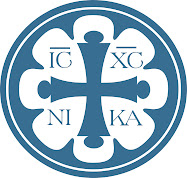No...not "the DaVinci Code"...the honor code!
Here's the deal, we had a discussion group this morning around a movie called "Code Breakers". It's an ESPN movie about a 1950's West Point Football team and a student cheating scandal. It's a well done film and provides a great starting point for discussion on subjects like truth, honor, relationship, and responsibility.
I would like to discuss some of the themes here. So go rent the movie some time this week/weekend and we'll through some questions out and see what happens.
Thursday, November 16, 2006
Code Breakers
Posted by Ted Ancelet at 10:37 AM
Labels: Culture, Spirituality
Subscribe to:
Post Comments (Atom)



17 comments:
OK, I watched it. Let'er rip.
First give me some of your overall impressions.
OH man. I must tell you that I don't take much away from movies.
It was a good show?
Corruption can run through any organization. Rebellion is contagious.
Sorry I'm taking so long on the questions...short week has me hopping.
For starters though...who's the hero? How do the events in the movie model such issues like law, grace, truth, love, redemption, reconciliation? How does the “honor code” compare to various codes in Scripture? Should the church handle “violations” like West Point? How about believer to believer?
More to come…have to work now :-)
Can we answer one question at a time please? Your asking a lot from me.
Who's the hero? I guess that'd be Nolan.
Should the church handle things like West Point? Depends on the who what when and where.
Okay...let's focus on Nolan. What makes him a hero?t
I didn't use the word hero you did.
I wouldn't call him a hero. He put the honor code above everything else.
Do you think he was a hero?
Actually I don't think there are really any heroes in this movie (if by hero we are describing someone who does the “honorable thing” in each circumstance). That's what was a little disturbing about it for me...no one wins.
Nolan upheld the honor code, BUT at the expense of his friendship. The question I found myself asking was could he have somehow done both? Or at least provided an opportunity for Holbrook to do the "honorable thing". I didn't like the sneaking around that Nolan did. Was that "honorable"? Was Holbrook wrong, absolutely, but did he deserve more from his friend…I think yes.
One of the things that really spoke to me in the movie was the complete absence of grace. In that system it's "law". The law is objective, but impersonal. Therefore there is no bending, no understanding, only obedience and punishment. See I’m all about the law…for everybody else! I’m not interested in a removal of law (anarchy), but I’m defiantly an advocate for a “personal application”. Law keeps us on the straight and narrow, but provides no opportunity for restoration. I just keep thinking of the impact Jesus had on the “Law”…and I’m GRATEFUL!
More tomorrow…
Well, exactly what kind of friendship did they have? They had no deep ties, just roommates. And Nolan did try to find a way for Holbrook to remain at the acadamy. A full confesion. But, based on Holbrooks respons to Nolan about who narked, I can't say I would have admitted it either. Lets put this in the context of West Point Military Acadamy. One should know going into it there is no grace. They're being tought to take orders and not second guess command. Besides, I wouldn't want to know that the guy who had my back was a liar and a cheat who had no faith in his commander.
Nolan did sneak around, or did he? Didn't he do what was commanded of him?
Also, isn't that what God wants from us? To learn to act on what he tells us without trying to understand it first?
I understand your point about the fact that this is a military school. They are being trained for war, war isn't "civilized" and so therefore the rules are different. But are things really as black and white as cheating on a test = expulsion from the acadamy, especially if in all other areas a cadet is eximplary? Are all honor code violations the same and so therefore worthy of the same punishment? Is honor a "legal" issue or a "moral" one? Is it something that is caught or taught?
Also, I think Holbrok and Nolan's relationship was deeper than roomates. He went to his house for Thanksgiving and even dated his sister.
Don't misunderstand me, the cadets were wrong! They knew the rules going in, played with fire, and got burned. I think more than anything this movie really helped me to appreciate grace and the fact that we aren't under "the law" (Col 2:13-15).
I think if any of them had cheated once and got caught, things probably would've been different. But, this wasn't a one time thing. It was organized and ongoing. Honor is taught, rebellion is natural. It's part of our sinful nature. No one has to teach a child to steal, he just does it with out thinking.
Let's say you find out the church accountant has stolen some money. You confront him, he admits guilt, says he's sorry. You give him some grace. Now you find out he's been stealing every month since he got there. You confront him, he denies. Do you keep him on as your accountant? Do you move him to a different job? Despite how great your accountant may be in other areas of ministry, is he really honoring you by stealing from you?
I don't believe it's the type of violation that matters. It's our attitude toward the person in authority. Can there be honor without law? Does a command = law?
Are we free of "law" or "legalism"?
Thanks for your last post Jason, I think you are highlighting a subtle distinction between forgiveness and pardon. Restoration of fellowship and restoration of position are two different things. Sometimes to restore fellowship, position has to be sacrificed. I think in some ways we loose perspective these two ideas and sacrifice one for the other. Your accountant example is an illustration highlights that to me.
I want to explore the “law” and “honor” connection. Expound on your questions “Can there be honor without law? Does a command = law? Are we free of law or legalism?”
Forgive and pardon can/do mean the same thing.
You said "Restoration of fellowship and restoration of position are two different things." Then you said "I think in some ways we loose perspective these two ideas and sacrifice one for the other."
If they are separate, one has to be at the cost of the other. Would you keep your account on while trying to work things out?
My point about the accountant was only to show how honor is not compartmentalized. Did Bob Blaik honor his father by cheating so his team would win?
Let's take God out and pretend we evolved. We live by our animal instincts. Is there any honor? Can there be honor without law?
Does a command from God equate law?
legalism = a system that restricts free choice
Are we free of law or legalism?
Forgive and pardon can mean the same thing, I am using them in a way that they don’t (and I think there is precedence for this in Scripture with respect to the interaction of believers, we are called to always forgive, but pardon is reserved for those who repent). Some definitions would be helpful:
Forgive = our emotional response to an offender
Pardon = deals with the consequences actions
Just because restoration of position and fellowship are different doesn’t mean that they have to be at the cost of each other. Would I keep my accountant while we work things out…no; but would I not work things out and keep him…no. I’m not sure your point. I agree honor is not compartmentalized which is to my point…we have to be honorable in our obedience as well as our relationships.
You asked “are we free of law or legalism?”…ummm…what is the opposite of “law or legalism”? I don't think law is bad, I do think legalism is bad (though I would define legalism as a system the sees the law as an end in and of itself).
I think we may be a little off task. How would you define honor?
The opposite of law/legalism is to be without law, or lawlessness. But in reality, there can be no lawlessness because at some point the lawless people will begin to define ther own laws. I'll get back to you on honor.
One thing about honor that just popped into my head was to "avoid offense". One thing I remember Jesus saying was along the lines of "....pay the tax lest you offend them". Or like the "honor your father and mother...." scripture. There doesn't need to be law involved but conducting yourself in such a way where your not intentionally offending someone. Jesus didn't think the tax was right but He paid it anyway to avoid an offense. He honored the laws set before Him.
Post a Comment